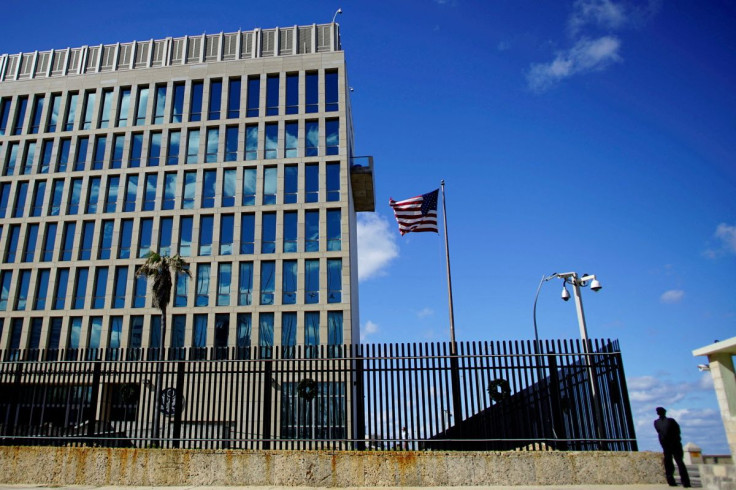U.S. To Ramp Up Staffing At Havana Embassy To Process Some Visas

The U.S. Embassy in Havana announced on Thursday it would ramp up staffing and resume some visa processing several years after the Trump administration slashed personnel at the facility following a spate of unexplained health incidents.
The top U.S. diplomat in Havana, Timothy Zu?iga-Brown, made the announcement at a news conference, confirming a Reuters report from Monday.
The deployment of additional consular officers to Havana, a result of President Joe Biden's ongoing review of Cuba policy, will begin to address a more than four-year backlog of requests for immigration visas by Cubans with family in the United States.
It also marks a rare step by the Biden administration to ease restrictions on communist-led Cuba imposed by former Republican President Donald Trump, who rolled back the historic rapprochement overseen by his Democratic predecessor, Barack Obama.
Just prior to the announcement, the Cuban government issued a statement to Reuters slamming the Trump-era policy as unjustified and harmful to U.S-Cuba ties.
"Over five years, that decision has had very damaging consequences for the entire Cuban population, as well as for Americans," said the statement signed by Ines Fors, head of U.S.-Cuba bilateral relations.
The statement did not directly address the announcement to ramp up staffing, and Zu?iga-Brown did not provide a timeline or numbers.
A U.S. Embassy statement issued after Zu?iga-Brown's announcement stressed a "limited resumption of some immigrant visa services" in Havana. It added that Cuban immigrant visas will still be processed mainly at the U.S. Embassy in Guyana, while Havana offices will focus on other consular services and "limited emergency non-immigrant visa processing."
Trump sharply scaled back embassy staff in 2017 after some staff in Havana became ill with what has become known as "Havana syndrome." The unexplained illnesses first affected U.S. employees in the Cuban capital but later cropped up in other parts of the world.
The Cuban government has long denied any involvement or knowledge of the incidents.
© Copyright Thomson Reuters 2024. All rights reserved.







